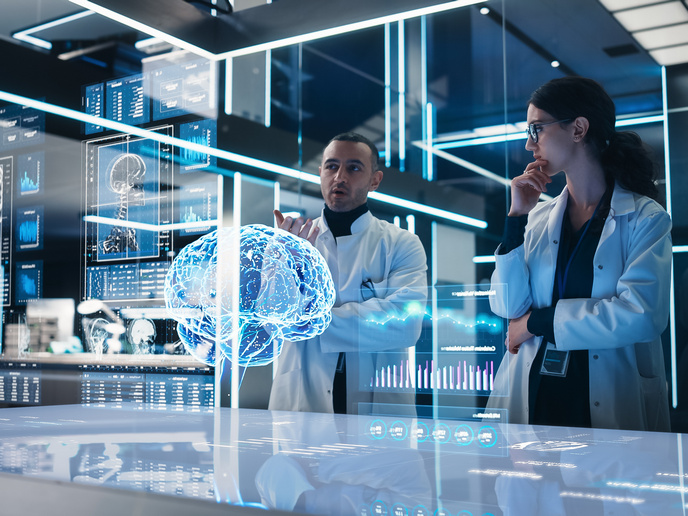Empathetic AI detects your emotional state
Humans are emotional creatures, but detecting what emotions people are feeling can be difficult. This can lead to dissatisfaction in various interactions, including with customer-facing services. Now artificial intelligence (AI) is opening up new opportunities for better exploration of human emotions. In the EU-funded ONTBO(opens in new window) project, researchers designed a new technology that harnesses AI and neuroscience to measure human emotional states. The technology combines an electroencephalogram (EEG), facial detection and speech-to-text analysis to measure your emotions in real time. “Ontbo is the first empathetic and ethical AI based on the measurement and analysis of users’ emotions to offer them hyper-personalised experiences in real time,” explains Athénaïs Oslati, founding partner of the company Ontbo and coordinator of the ONTBO project. “Our cutting-edge technology is based on sensors and biosensors such as facial detection, audio analysis, text analysis and EEG.” The aim is that customers will avoid feelings of frustration and feel in tune with the content that platforms or brands are offering.
Analytical AI detects emotions
Ontbo is a multimodal technology, which uses EEGs and AI to pick up emotions such as concentration, stress or relaxation in real time. This data is fed into a series of algorithms, developed through the course of the project. “Based on the customer’s emotions, history, preferences and tastes in real time, we propose content that’s adapted to them,” adds Oslati. “Depending on the evolution of their emotions and reactions, we refine the proposed content.” The algorithms learn the emotional state of the wearer, essentially modelling the individual’s psyche. “All the information, encoded in computer form, enables us to predict an individual’s emotional and cognitive reactions with a sufficient degree of accuracy,” says Oslati. “The digital psyche also refers to the set of algorithms used to process this information.” The technology has a wide range of potential use cases, from team management in e-sports, to facilitating transitions between clients in the financial sector and tailoring products and services to individual customer needs. “Our vision is clear,” notes Oslati: “To use emotions as a catalyst for getting to know each other better, and thus avoid the frustrations associated with missed user experiences.”
Developing a proof of concept to pick up micro-expressions
Through the course of the project, the ONTBO team carried out a state-of-the-art study to test its research theses and develop its affective computing algorithms. “Affective computing is the study and development of artificial intelligence computer systems capable of modelling human emotions in order to recognise and/or imitate them,” Oslati explains. The team produced a proof of concept, then a minimum viable product (MVP), before applying for patents. They are now entering the commercialisation phase and hoping to bring the product to market soon. The most important result was the ability of the device to detect micro-expressions in an Asian data set, a Caucasian data set, and three different languages (English, Japanese and French). Tests performed by the team showed an accuracy rate of over 90 %, in different countries.
Creating an emotional catalyst
The company will continue to improve the algorithms, to make them even more ethical and user-friendly. “The next step is the development of algorithms to predict user reactions and emotions,” Oslati concludes.







